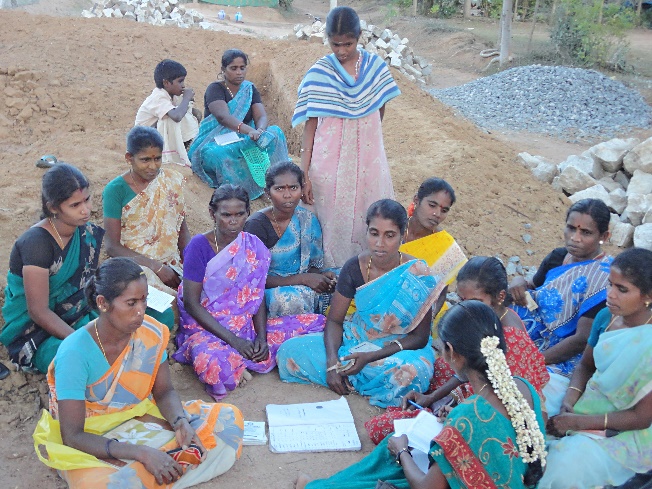Meet Kanta
Five years ago, I was no-one,” said Kanta Devi to me, sitting up straight against the wall of her one-room mud hut in a small village in India’s south eastern state of Tamil Nadu. “Now, people know me by my own name, not just by the name of my children.”
I was sitting on the floor, across from Kanta, a mother of six, who belonged to one of the most vulnerable and socially excluded castes in India. She recalled how when her husband was injured and lost his job a few years ago, the family was pushed over the brink from subsistence to hunger and poverty. At the time, Kanta took a bold step for a poor woman used to living in the shadows of society. She joined a women’s self-help group (one of many we created across rural hamlets) in her village and took a small loan to raise goats. With the income she generated, she repaid her first loan and took another one – this time to lease land to produce grain. She borrowed again when her family faced a health crisis.
Today, Kanta has several sources of income. She is also planning ahead and wants to open a food outlet on a busy road. Given that two of her sons have now married, she wants to find a larger living space for her growing family. Of course, Kanta and the women in her self-help group still have a long way to go. Yet this is another remarkable story of empowerment through collective action. To me, the confidence these women have cultivated over time carries as much currency as their earnings. Through our support, the group were inspired to organise themselves and work hard toward building a better future.
For many years, the region where Kanta lives was known for endemic poverty, corruption and a society deeply divided by the caste system. Then, the state government launched an ambitious development programme. It invested in roads, public health care and school systems. It even gave bicycles to girls as a reward for staying in school, which resulted in a fall in dropout rates and finally economic growth outpaced the national average.
